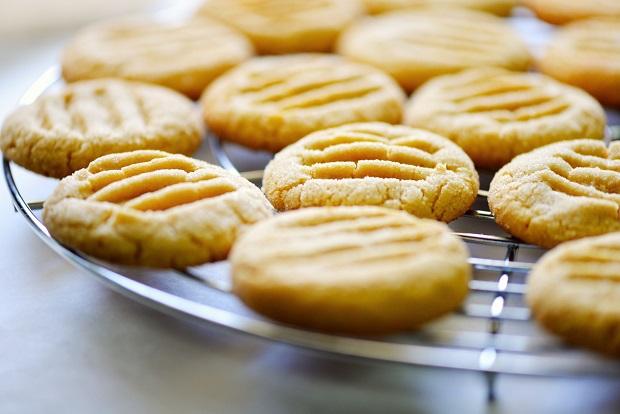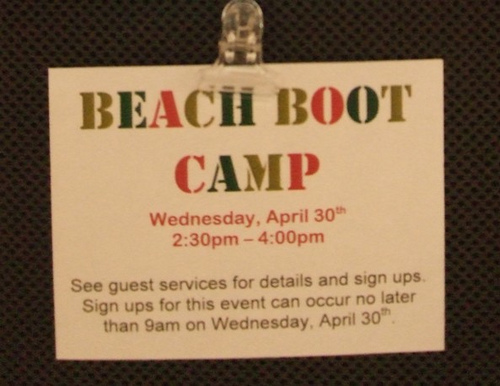Experts agree that if you're going to "share" your weight loss updates and turn to social media for diet advice and inspiration, there are some important things to keep in mind. Here, the 5 Facebook mistakes every dieter makes—and how to avoid them:
Mistake No. 1: You declare your goals for all the world (or, at least your Facebook friends) to see. You've got big goals. Putting them out there for your 500+ connections can only keep you committed, right? Wrong, says Adrienne Raimo, RD, an integrative and functional dietitian in Columbus, Ohio. "It can be very tempting to post unrealistic goals—say, that you're going to lose 30 pounds before your birthday or only eat clean from here out—which sets you up to feel bad about yourself if you don't reach the goal," she says. "Think about how ashamed you're going to feel when you have that beer or ice cream this weekend, and how much more likely you'll be to throw in the towel and quit because you failed in front of everyone."
The fix: Post your mini-successes instead. Rather than sharing what you're aiming to accomplish, go ahead and post a humble brag about making it to the gym 5 times this week or slipping back into those pre-pregnancy skinny jeans—especially if you think it's a post that'll garner a lot of supportive comments, says Raimo. "That's more likely to make you feel good about your efforts and keep you on track as a result."
Mistake No. 2: You post updates while you're at the gym.
 Photograph by Hero/Getty Images
Photograph by Hero/Getty Images
When Jamie Logie, a certified personal trainer and nutrition specialist notices people "checking in" before their workouts and posting comments in the middle of their sweat session, he's incredulous. "It's often a tip-off that the person is more interested in creating a persona than in putting in the work that'll help them make good progress," he says. Not only that, but new research from Kent State University found that when people use their smartphones during exercise, it causes a reduction in exercise intensity, which means a more measly calorie burn and fewer health benefits.
The fix: Keep your phone stashed in your gym bag or locker. This way, you won't even feel tempted by the distraction.
Mistake No. 3: You're fixating on food photos.
 Photograph by Wanwisa Hernandez Eyeem/Getty Images
Photograph by Wanwisa Hernandez Eyeem/Getty Images
Think about the last time you saw a picture of a mouth-watering plate of freshly baked cookies or a just-out-of-the-oven macaroni and cheese casserole. Odds are the photos of those comfort foods not only prompted you to "like" them, but also to find a way to eat them ASAP. Brandon Mentore, a strength and conditioning coach and sports nutritionist in Philadelphia says one of the ways social media can sabotage your diet is by shifting your relationship with food to a form of entertainment. "Constantly seeing images of food over-stimulates your visual senses and can slowly erode the idea that food is first and foremost nourishment," says Mentore. "Worse, our exposure to all of these beautiful-looking meals can make the food we actually eat seem boring because it's not as stylized as it is in a photograph."
The fix: Try to estimate the calorie count of those succulent photos—and remind yourself these foods don't fit your eating plan. And while you're at it, stop following Food Network shows, food bloggers, and even friends who are obsessed with home baking. "One of the functions of any diet is to tune into your body and what it needs and the signals it's sending you," says Mentore, which means you need to try to tune out all of the triggers that'll inspire you to make poor choices. (Snack AND lose weight with this box of Prevention-approved treats from Bestowed.)
Mistake No. 4: You measure up your own progress against others'.
It's nearly impossible not to compare your results to that of your Facebook friends. However, research shows that constant comparisons will only make you feel like a failure—no matter how great you feel before you log on. "If you have been exercising and eating well for a week or two and aren't seeing results, stumbling across a friend's bikini pics can make you say, ‘Why bother?' " says Raimo. "You can feel like you'll never look that good—and that you're tired of life without Snickers bars."
Shane Allen, a certified weight loss specialist and personal trainer in Dallas calls this the "Facebook failure" effect—or "Twenvy" for Twitter, "Pinsentment" on Pinterest, and "Insta-jealousy" Instagram, he says. "It's easy to fall into that trap of feeling like you're not measuring up if others seem to be more successful than you," he says.
The fix: Try to focus solely on you. Yes, this can be damn near impossible to do. But it's a worthy effort, says Allen. "Remind yourself often that you're losing weight to feel good about you. You're doing this for your health. That'll help keep you from making unhelpful comparisons."

Mistake No. 5: Friends are scoring awesome results on the latest weight-loss fad—and you decide to jump on.
 Photograph by Getty Images
Photograph by Getty Images
Mentore says the sheer volume of sharing on social media can lead to trouble. "It's like the wild west," he says. "There are way too many variations of what people are eating and how they're eating it. So many people are preaching, selling, coaching, posting—it's distracting to the point where most of us feel totally overwhelmed."
The fix: Try to tune out the "noise" and hone in on what supports your path. "When you feel yourself questioning or doubting your own program and routine because of social media, step away from the monitor and remind yourself of why you chose your plan—and what's working," says Mentore. It gets back to ditching the comparisons and focusing on yourself, and if that means tuning out and turning off social media for a while, so be it. "It'll become clear—pretty quickly—whether Facebook and your other social platforms are helping you reach your diet goals or not," says Raimo.




